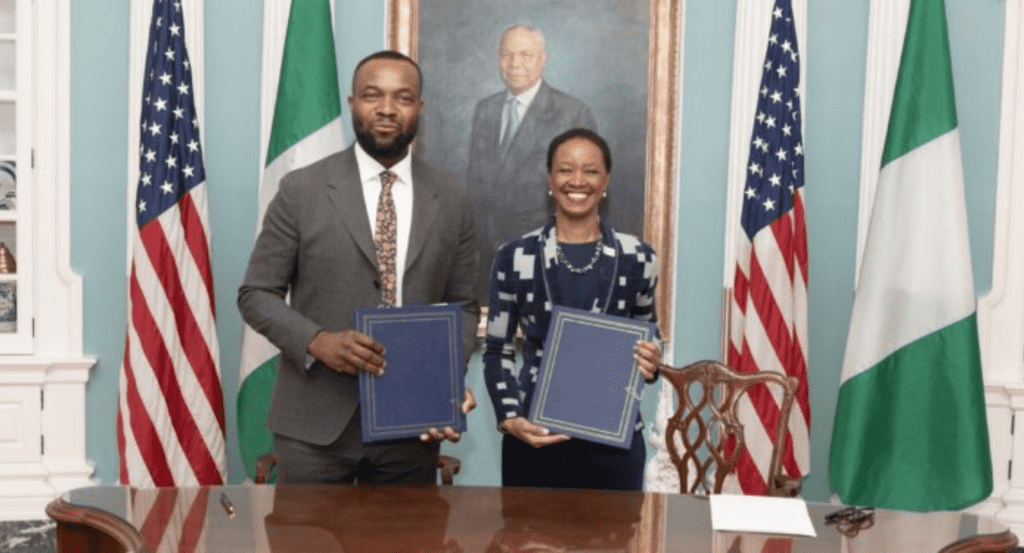The United States and Nigeria have initiated a high-level Technology Dialogue aimed at fostering bilateral cooperation and driving digital transformation. As part of this partnership, the U.S. Trade and Development Agency (USTDA) has signed a $2 million grant to expand Nigeria’s fiber optic infrastructure by 90,000 kilometers, marking a significant step toward enhancing internet access across the country.
The initiative aligns with Nigeria’s National Broadband Plan (2020–2025), which targets at least 70% broadband penetration by 2025. The $2 billion broadband expansion project, supported by private sector investments, is designed to close the digital divide, improve connectivity in underserved areas, and accelerate economic growth.
During the launch of the dialogue, representatives from both nations emphasized the critical role of technology in economic development. The U.S. Ambassador to Nigeria highlighted that enhanced connectivity would create opportunities for businesses, education, and healthcare, while also strengthening Nigeria’s position as a leading digital economy in Africa.
Nigeria’s Minister of Communications and Digital Economy reaffirmed the government’s commitment to fostering partnerships that enable affordable and reliable internet access. The government has also urged telecommunications companies to partner in the broadband rollout, which will benefit over 100 million Nigerians.
According to the USTDA, the grant will fund feasibility studies and technical assistance to identify the best pathways for expanding the infrastructure. By leveraging cutting-edge technology and expertise, the project aims to ensure sustainable implementation.
Industry stakeholders, including telecom operators, have expressed optimism about the project’s potential to revolutionize Nigeria’s digital landscape. However, they called for transparent governance and regulatory support to address challenges such as right-of-way issues, infrastructure vandalism, and the high cost of implementation.
This collaboration also highlights the broader U.S.-Nigeria partnership, which includes initiatives in cybersecurity, digital entrepreneurship, and workforce development. Both countries are committed to leveraging technology to tackle pressing global challenges such as climate change and public health crises.
The broadband expansion is expected to drive significant economic impact, contributing to job creation and attracting foreign investments. It will also play a key role in Nigeria’s efforts to achieve its digital economy agenda and enhance its global competitiveness.
As the dialogue progresses, stakeholders will monitor its implementation to ensure it delivers on its promises of digital inclusion and sustainable growth.






















